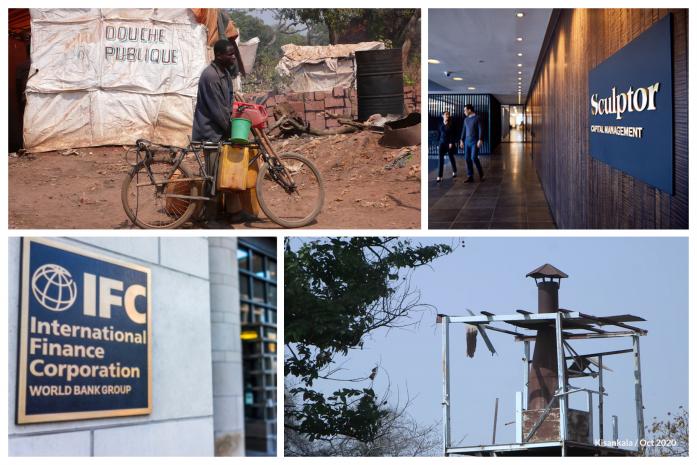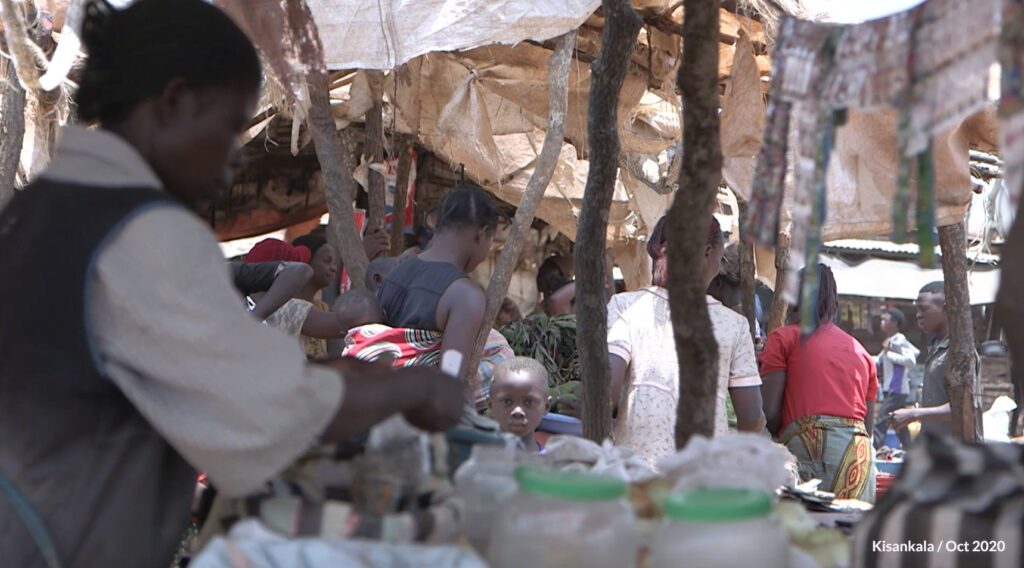Hedge fund Och-Ziff to pay restitution to Africo shareholder victims in DRC corruption case
A New York court today sentenced OZ Africa, a subsidiary of multi-billion-dollar hedge fund Och-Ziff, for corruption linked to mining projects in the Democratic Republic of Congo. It awarded $135 million in restitution to the former shareholders of Africo Resources Ltd, who lost their investment.
The shareholders were recognised as “victims of crime” by the court for loss of their interest in the prospective Kalukundi copper and cobalt mine in southern Congo. Congolese communities living near the stolen mine received no compensation as their plight was not taken into consideration in the US court proceedings.
The World Bank’s private sector arm, the International Finance Corporation (IFC), an important Africo shareholder, could have participated to recover millions for the fight against poverty. According to sources close to events, IFC chose not to join the legal action until the eleventh hour. It is further understood that IFC’s late entry triggered a dispute about whether it gave away its restitution rights as part of an opaque sale of shares to Africo’s former chairman. It is not clear if IFC is on the shareholder victim list.
“Thousands of impoverished Congolese residents are missing from this case and will receive no compensation for their loss of social and economic benefits,” said Anneke Van Woudenberg, the Executive Director of UK corporate watchdog RAID. “IFC was repeatedly asked to step up, but failed to take action early on, hasn’t revealed if it will recover any funds, and is showing little regard for the welfare of those who need it most.”
The US judge also confirmed a $213 million penalty against the Och-Ziff subsidiary after it pleaded guilty to conspiracy to violate the Foreign Corrupt Practices Act (FCPA). Och-Ziff earlier paid a $200 million civil penalty to the Securities and Exchange Commission. In total, Och-Ziff will have paid $548 million in monetary penalties and restitution. In 2019, in an effort to put the scandal behind it, Och-Ziff changed its name to Sculptor Capital Management.
As a former Africo shareholder impacted by the corruption, IFC could have participated alongside other shareholder victims in the legal action from the outset based on its six per cent holding plus its share options, thereby providing an indirect opportunity for Congolese residents to be represented. After the Kalukundi mine was stolen from Africo, the mining project was mothballed and thousands of Congolese residents living near the mine missed out on employment opportunities, access to clean water, health care and education, which were committed as part of the project.
Since 2019, RAID repeatedly pressed IFC to seek restitution for Congolese communities or explain why it was not joining the legal action by other shareholders, but IFC provided no clear answers. IFC sold its shares in Africo more than a year after the company was effectively corrupted away. IFC said in written correspondence to RAID (1 May 2019) that it had transferred its legal rights to a “third party” but did not say who the party was nor how restitution rights which only arose in 2016, following the DOJ’s legal action against Och-Ziff, could have been anticipated and transferred as part of its initial share disposal. The buying and selling of shares is usually a straightforward transaction and would not include restitution rights.
RAID’s examination of company filings and accounts shows Chris Theodoropoulos, a former Africo chairman, bought shares equivalent to IFC’s holding in September 2009 and is therefore likely the “third party” referenced in IFC’s correspondence. RAID contacted Theodoropoulos to provide further clarification about IFC’s restitution rights, but he did not reply. RAID understands that Theodoropoulos is claiming the restitution rights to IFC’s shares.
RAID understands IFC’s position on its restitution rights changed in September 2020 when it suddenly appointed lawyers to represent its interest. IFC’s late entry is likely the cause of a dispute with two other claimants, believed to be Theodoropoulos and his wife, over its share of the restitution award. A court filing on 13 October 2020 said “the dispute between claimants over the restitution claims for a specific set of shares” had been resolved, but it provided no further details. IFC did not respond to RAID’s request for comment.
RAID said that IFC’s repeated failure to act earlier to recover compensation for Congolese communities was baffling and in sharp contrast to the World Bank’s goals of ending extreme poverty and combating corruption. The group urged that whoever recovers the restitution award linked to the IFC’s shares allocates the millions toward social investment in the affected communities and the fight against corruption in Congo.
RAID also raised concerns about why the World Bank Group has yet to debar those identified in the DRC corruption scheme from doing any further business with it.
Israeli businessman Dan Gertler is named in the OZ Africa court documents as a key player in the Congolese corruption scheme. In one filing to the court in March 2020, OZ Africa’s attorneys state: “The record is clear that much of the wrongdoing here was directly caused not by OZ Africa, but by others more culpable like Gertler and corrupt DRC officials.” At the time of the 2016 FCPA action against Och-Ziff, Gertler strongly denied “any and all accusations of wrongdoing in any of its dealings in the DRC including those with Och-Ziff”. To date, Gertler has not been charged by US authorities.
Gertler and his companies were sanctioned by the US Treasury in December 2017 and June 2018 as part of a clampdown on corrupt actors. According to the US Treasury, Gertler amassed his fortune through “hundreds of millions of dollars’ worth of opaque and corrupt mining and oil deals in the Democratic Republic of the Congo.”
“IFC has the power to investigate and debar those who have engaged in sanctionable practices and Dan Gertler should be top of IFC’s list,” said Van Woudenberg. “The US government has acted to sanction Gertler, surely it’s high time the Bank does the same and sends a clear signal that it will stand up against corrupt actors.”

Further background:
The Kalukundi mining project is today owned by Kazakh multinational mining company, Eurasian Resources Group (ERG, previously known as Eurasian Natural Resources Corporation, or ENRC). It has yet to be developed. The mine was wrapped up with other mining assets into Gertler’s company, Camrose Resources, before being sold on to ENRC in two tranches in 2010 and 2012. ENRC paid $725 million for Camrose and its holdings in Congolese mines, originally acquired for a fraction of that price. According to the US Treasury, “the DRC reportedly lost over $1.36 billion in revenues from the under-pricing of mining assets that were sold to offshore companies linked to Gertler.”
In April 2013, the UK’s Serious Fraud Office (SFO) launched a criminal investigation into ENRC for “allegations of fraud, bribery and corruption around the acquisition of substantial mineral assets,”
which is ongoing. ENRC has not been charged and denies any wrongdoing. The company delisted in scandal from the London Stock Exchange in November 2013 following reports of poor governance and opaque deals. In January 2020, a first group of 16 Congolese residents stepped forward as potential victims in the SFO’s investigation into ENRC.
Since victims of corruption rarely have a voice in legal proceedings, RAID repeatedly pressed IFC to seek restitution for Congolese communities or explain why it had not joined the legal action by other shareholders. In September 2019, RAID submitted a 36-page complaint to the World Bank Integrity Vice-Presidency, an independent unit within the World Bank Group. RAID asked it to investigate IFC’s due diligence before it invested in Africo, IFC’s actions once the company was taken over by the co-conspirators, and how it ultimately divested.
In April 2020, without meeting with RAID or requesting any additional information, the Integrity Vice Presidency informed RAID it would not undertake a preliminary inquiry for lack of detailed information and referred the matter back to IFC. On 9 June 2020, in response to further communications from RAID pressing it to act on behalf of Congolese communities, IFC said it did not “have any additional comments on this matter at this stage” and “considers its involvement to have ended”. In August 2020, RAID again wrote to IFC urging it to participate in the restitution claim. IFC did not respond.
In September 2020, IFC is understood to have appointed external lawyers to represent its interests in the restitution claim.

